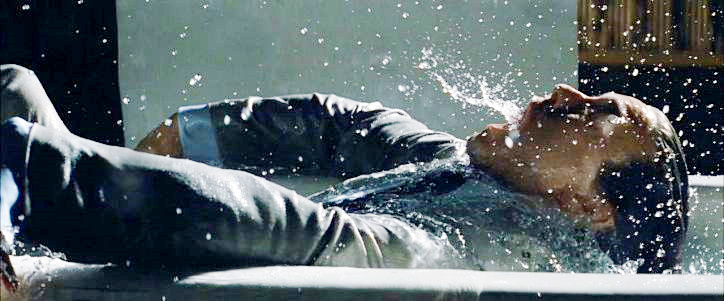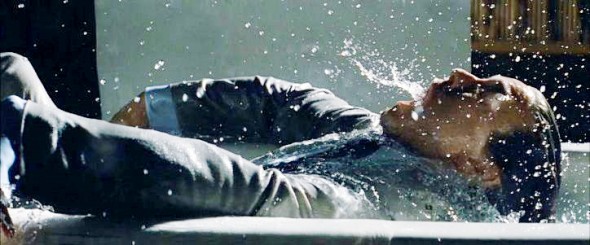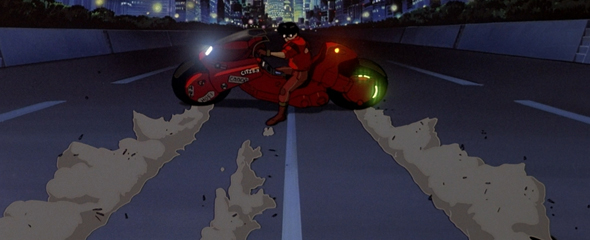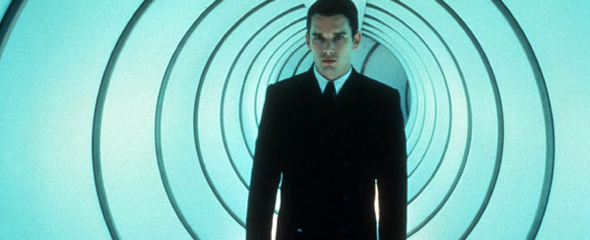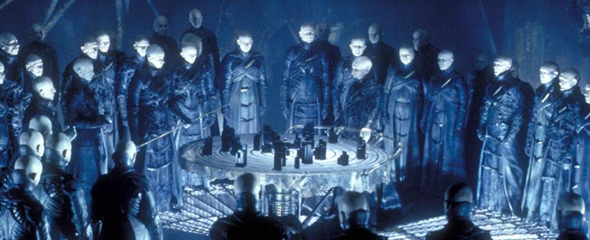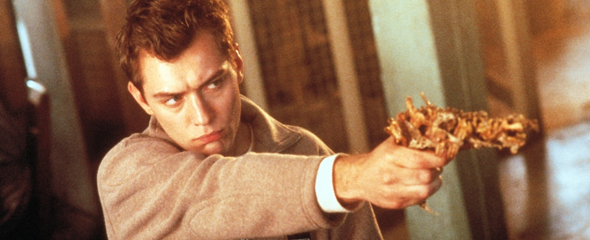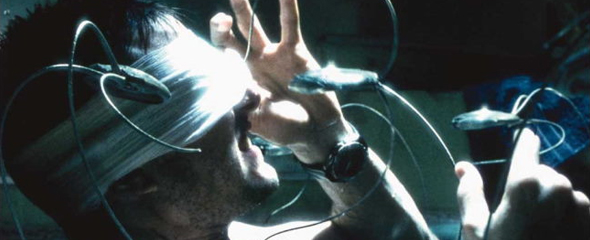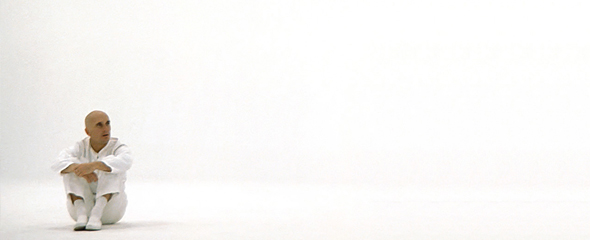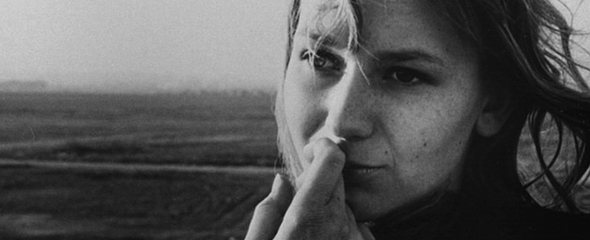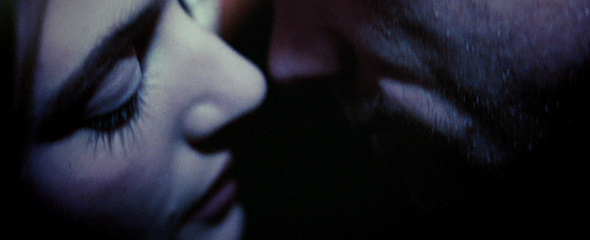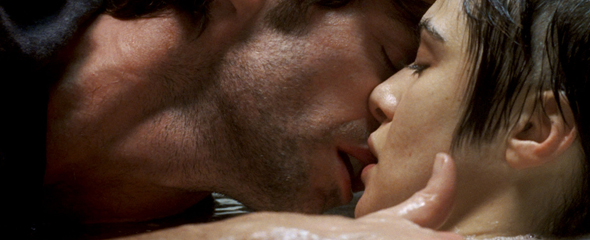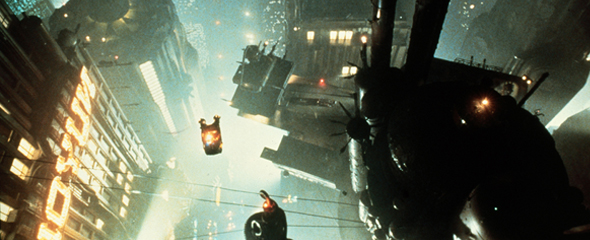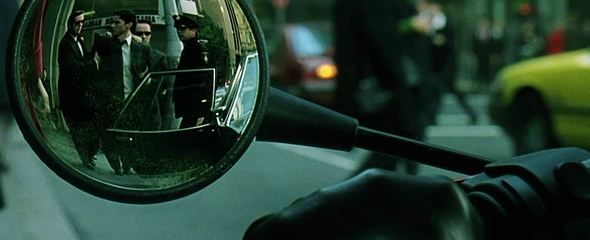As Inception warped our minds and showed us a new generation of sci-fi, Christopher Nolan has admitted to “plundering cinematic history” and using many references while creating his latest film. The films on list below are not only heavily referenced in Inception, but our favorite cerebral sci-fi films.
15. Akira (1988) (dir. Katsuhiro Ôtomo)
Akira is a hard pill to swallow. You may not take it all in at the first stab, but once you let your mind go and get fully involved, it’s a wonderful experience. Watching the anime makes you feel as if you are transported inside of Manga comic book. It’s a gorgeous world filled with cerebral ideas. While it is a bit of a mess, it’s a great mess. You can enjoy it as simply an action movie or, the preferable, as a cerebral experience. – Jack G.
14. Stalker (1979) (dir. Andrei Tarkovsky)
Andrei Tarkovsky’s brilliant sci-fi mind-bender is a film definitely worth seeking out and one that lends itself to an Inception-esque mind journey. The plot centers on an enigmatic ‘Stalker’ who brings two clients to a mysterious site known as ‘The Zone’ which purportedly allows its visitors a physical experience of their innermost thoughts and desires. While the intentional ambiguity to the nature of zone is meant to challenge the viewer, Tarkovsky’s hypnotic style is in full force wrapping your mind in a dream of a film. – Raffi A.
13. Brazil (1985) (dir. Terry Gilliam)
The focus of Terry Gilliam’s cult masterpiece is protagonist Sam Lowry contrasting daydreams to the dreary reality of his mundane life. After meeting the maiden he rescues in his dreams in real life, Sam is determined to learn what he can about this woman. But Sam’s journey into her life leads him into a cerebral vortex of a chinese finger trap, ultimately finding himself strapped to a chair for observation. Just like Inception’s dreamlike world seems to mirror a distorted reality of life, Brazil mirrors its own dysfunctional dystopia to the idyllic haven of dreams. – Raffi A.
12. Gattaca (1997) (dir. Andrew Niccol)
One of the most overlooked films of recent memory, this modern sci-fi classes brings us into the debatable world of genetics. The cerebral sci-fi adventure feels prophetic as it implants just as many ideas as Inception. – Jordan R.
11. Dark City (1998) (dir. Alex Proyas)
This 1998 cinematic gem seems to have been a source of inspiration behind many of Inception’s transforming building sequences. Better known in the world of Dark City as tuning, Alex Proyas stylish sci-fi film noir is a mystery wrapped in a mind twist centering on an amnesiac who has awoken in a city without a sun. What follows is a rabbit hole mystery of Strangers from outer space implanting artificial memories into the citizens of what may or may not be an actual city. – Raffi A.
10. eXistenZ (1999) (dir. Cronenberg)
The varying levels of reality within eXistenZ means it contains more layers than a Russian Doll factory, as virtual reality game designer Allegra (Jennifer Jason Leigh) and marketing trainee Ted (Jude Law) go on the run from anti-VR activists and rival manufacturers, experiencing double and triple crosses without having a clue what is reality and what is not. Amidst a smattering of Cronenberg body horror-trappings (check out the organic gun) there is a broad swipe at the potential abandonment of reality in favour of “unnatural” alternatives. As we, eleven years on, spend more and more of our time immersed online, it could yet prove prophetic. – Paul C.
9. Minority Report (2002) (dir. Steven Spielberg)
The term sci-fi and “overlooked” seem to go well together and Spielberg’s modern masterpiece is no exception. Full of ideas that seem to be (or already are) coming true, Spielberg mixes high-octane thrills as well as cerebral contemplations. Sound familiar? – Jordan R.
8. THX1138 (1971) (dir. George Lucas)
Mention of a dystopian future society in the discussion of Cerebral Science Fiction films is a given no matter what your preferences are. Although, being a foundation block of the genre makes for some serious competition among its peers. George Lucas’s low-budget vision of the future in THX 1138 has sustained its viability in the genre and remains a classic. THX 1138 is a rather sharp style contrast compared to Lucas’ later, post Star Wars: Return of the Jedi, filmmaking debacles. THX 1138 is better compared to some of Kubrick’s films. The filmmaking techniques used in the film, in addition to the bleak storyline, remind us the direction Lucas could have gone with his career and why we once loved him — if not to only re-enforce how much we don’t love him now. While the story at times seems oddly paced and hard to clearly follow, it has great performances to engage the viewer and bring humanity to the screen — including Robert Duvall who would have his break-out performance in The Godfather the following year. Visually stunning technique and moving performances bring texture to this Orwellian future where love and sex are outlawed and assures us that even in future totalitarian societies monitored and controlled 24/7 by “big brother,” the emotional bonds that make us human will never change or be snuffed out. – Addam H.
7. La Jetee (1962) (dir. Chris Marker)
More effective then Terry Gilliam’s remake 12 Monkeys, the original by Chris Marker is full of astonishing imagery of a post-apocalyptic world. This time travel story is told entirely in photographs and influenced almost all cerebral sci-fi films to follow. As we question time and space, La Jetee gives us a look at how memories form and shape us. – Jordan R.
6. Eternal Sunshine of the Spotless Mind (2004) (dir. Michel Gondry)
There are few screenwriters out there that can make a solid and enjoyable film as psychologically intricate and flat-out mind melting as Charlie Kaufman. Take Kaufman’s incredibly unique story-telling and apply Michel Gondry’s unique visual style and you have the dream-like world of Eternal Sunshine of the Spotless Mind. The outlandish and unbelievable nature of the story and its mechanics on a surface level alone elicits occasional laughter and awe in disbelief for the audience just as often as it serves as a perfect medium to bring the audience to odd and poignant places where we can examine the raw nature of heartbreak and passion. Demanding multiple views and possibly encouraging the use of mind altering drugs to make sense of it all, Eternal Sunshine of the Spotless mind is a must-see for the modern cerebral science fiction genre. – Addam H.
5. Solaris (1972) (dir. Andrei Tarkovsky)
We’re not talking about the shoddy 2002 Sodebergh remake but rather the 1972 Russian sci-fi classic from auteur Tarkovsky both of which are based on the 1961 Polish novel by Stanislaw Lem. This meditative psychodrama centers on Kris Kelvin, who travels to the Solaris space station where its inhabitants have been overcome by hallucinations. The themes Tarkovsky explores are psychologically complex and were further examined and developed in Stalker. The existential conflict for Kelvin was only the starting pointing for Tarkovksy studying the inner lives of the characters much like Nolan exploring the psychological elements of his characters. – Raffi A.
4. The Fountain (2006) (dir. Darren Aronosfky)
Darren Aronofsky’s ethereal modern masterpiece has not been incepted into the public conscious just yet, but like the other classics on our list, it will in time. Much like Inception, the auteur’s sci-fi trip is strongly founded on an emotional backbone. It also delivers the imagery, ideas and pure ecstasy that cement it as one of the best cerebral sci-fi films there are. – Jordan R.
3. Blade Runner (1982) (dir. Ridley Scott)
Blade Runner is quite possibly the most misunderstood film of its time. The original cut may not have been the best version, it isn’t, but it was still an impressive and unique piece of sci-fi filmmaking none-the-less. Ridley Scott poses the question on all of our minds, “What makes us human?” A lot of Scott’s films deal with human nature, but Blade Runner is the one that truly gets into the psyche of human behavior. The Director’s Cut represents these questions the best with subtlety. It’s the pinnacle representation of sci-fi. – Jack G.
2. The Matrix (1999) (dir. The Wachowskis)
It’s amazing to think that this, the daddy of false reality themes, so oft-referenced and woven into our consciousness, arrived over a decade ago, and arrived as almost a sleeper hit, with teasers containing “What is The Matrix” largely the only marketing. Mostly, it’s remembered for ‘bullet-time’ and sunglasses, which is ridiculous because The Matrix contains one of the biggest existential rug-pulls in cinematic history. We’ve all pondered our own realities at some point and The Wachowskis took this idea and combined it with the age-old ‘man vs machines’ scenario to create the best sci-fi of recent times. A lot (and I mean A LOT) has been written on the film’s spiritualistic leanings, but really it’s a look into the character of man, and how he struggles to do the right thing. ‘Choice’ is the one key theme. – Paul C.
1. 2001: A Space Odyssey (1968) (dir. Stanley Kubrick)
This is it, the ultimate mind trip and the definitive cinematic experience about the voyage of human life and our unforeseen journey into the cosmos. Unrivaled by any other sci-film, Kubrick’s 2001 is more than a mere movie, it’s a life changing event. It’s a visual spectacle like nothing you’ve ever seen. No other film in the history of cinema seems to have had such a profound effect on the human condition while touching on a variety of universal themes ranging from human evolution, technology, AI, extraterrestrial life and the mystery beyond the infinite. And while 2001 is considered by many to hold the throne as the ultimate cerebral film experience, Inception is poised to at the very least rival it as a cinematic adventure of the ages . – Raffi A.
What are your favorite cerebral sci-fi films? Does Inception stand among them?

